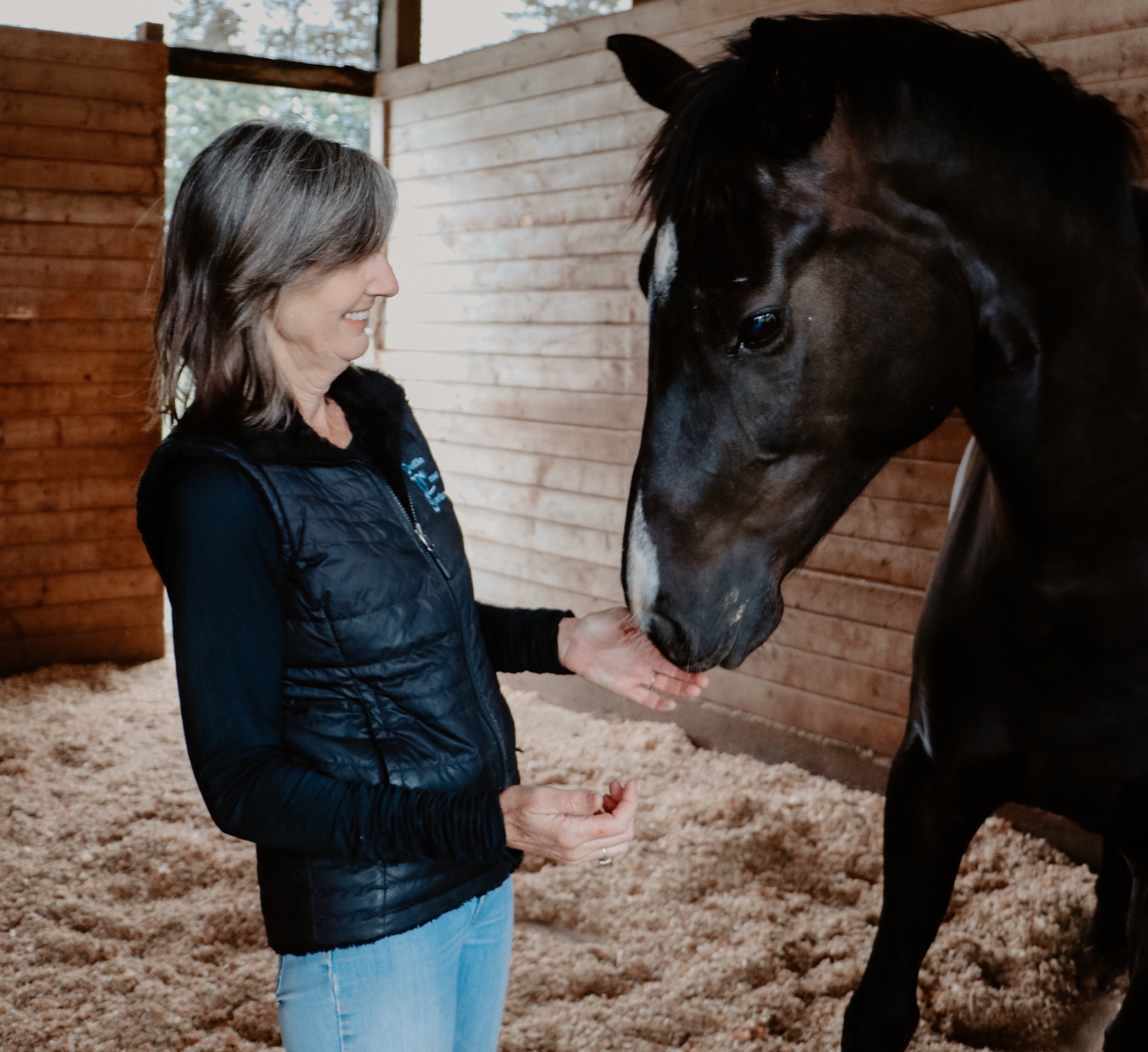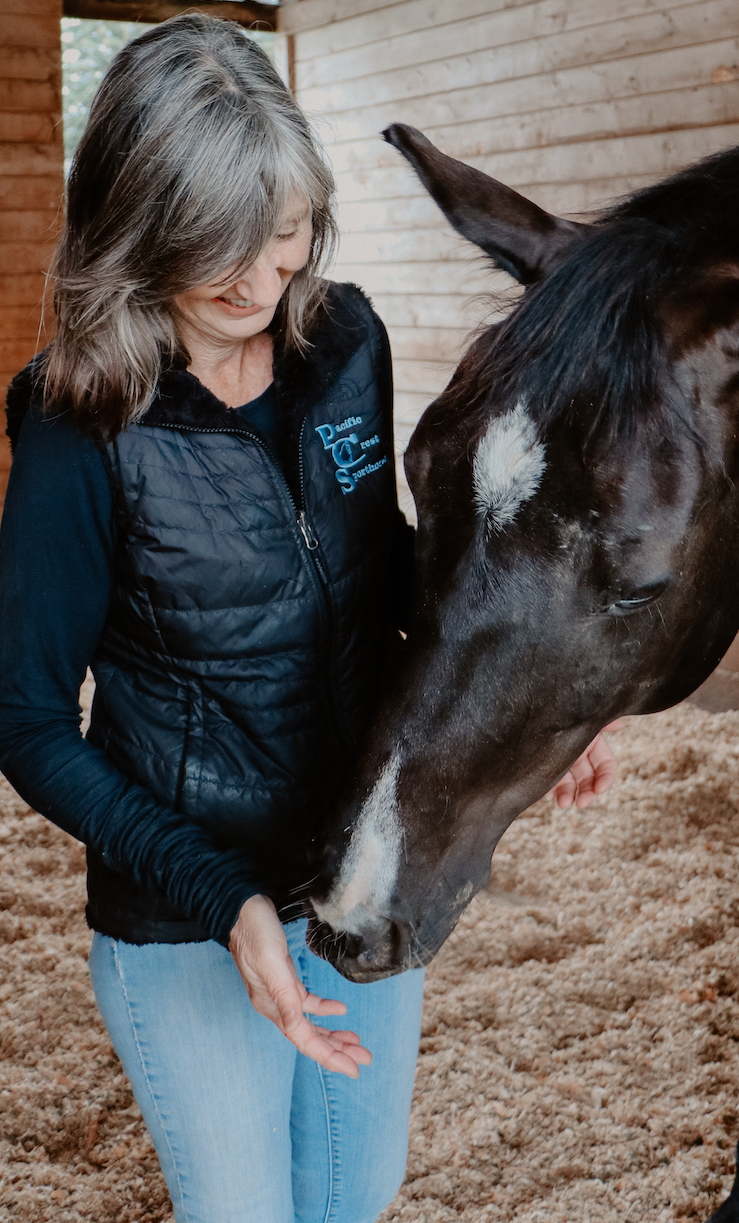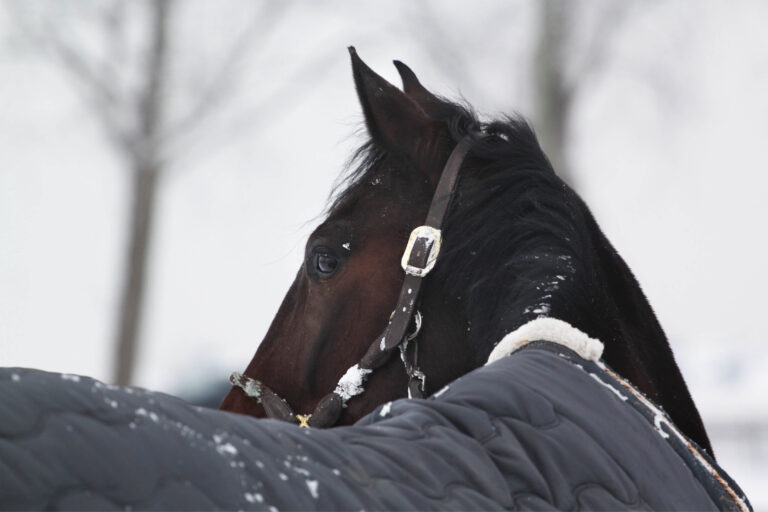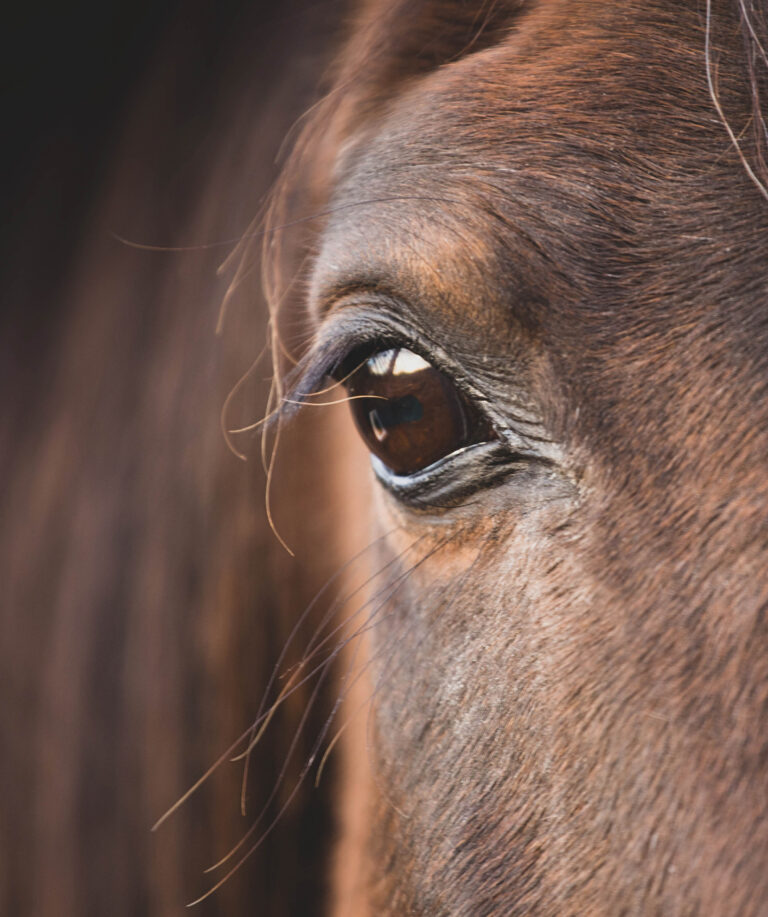
You know her as H&R’s consulting veterinarian, the one who provides expert, easy-to-read information and advice about your horse’s health. (To see what I mean, just search “Barb Crabbe, DVM” here at HorseandRider.com and watch what comes up. You’re welcome.)
But did you know she’s also a highly accomplished rider, with multiple awards and regional year-end championships in dressage, the discipline of her choice?
The Comprehensive Guide to Equine Veterinary Medicine
Products we feature have been selected by our editorial staff. If you make a purchase using the links included, we may earn a commission. For more information click here.
It’s true. And because of that, I decided it might be fun to ask her what key insights she’s gained from her nearly 30+ years as an equine vet who rides.
Here are two key things she told me.
1. ‘Horses are phenomenally generous creatures.’
The point of this, says the good doctor, is that we need to remember it whenever things go wrong.
“If your horse is being belligerent, resistant, unhappy, or displaying any other unusual behavior that’s new, always-always-always rule out pain or discomfort before you continue.”
She adds that although horses can’t talk, they can communicate.
“If you pay attention to their behavior and body language, you can usually figure out what they’re trying to tell you.”
Furthermore, if you’re ever in doubt about something that’s affecting your horse’s behavior, ask your vet about it.
“I can tell you from first-hand experience, your vet would much rather advise you early on—even if it’s just guidance over the phone—than have to deal later with an issue that’s festered.”
Dr. Crabbe says we should apply that same degree of patience and understanding even if it’s not pain that’s causing our horses to be slow or balky in learning something new.
“It could be that what you’re asking is just hard for your horse to do, plus maybe a little confusing for him.”
She offers an analogy.
“Think of what it would be like to learn a difficult dance move if you’d never danced in your life, you have little natural rhythm, and you’re even a bit uncoordinated.
“That would be frustrating for you, wouldn’t it? You’d want the dance instructor to break everything down for you and teach it in little bites, not big gulps.
“If your horse is naturally talented in your chosen sport, that definitely helps, but even then you want to make the process as agreeable for him as possible.”
In short, she says, “You want him to enjoy doing what you want him to do.”
And, going back to her original point about pain, she posits another hypothetical.
“Imagine your knee or hip is killing you, and your dance instructor is forcing you to jump up and down on it. Would your normally sweet disposition start to slip? I know mine would.”
[READ: Dr. Crabbe on how horses’ facial expressions can signal pain.]
2. ‘Keep your eyes and ears open and your mouth shut.’
This second insight is actually not, as you might be thinking, about humoring your vet. Rather, it’s about becoming the best horseman you can be.
Put another way, “eyes, ears open/mouth shut” means don’t automatically dismiss someone’s insight just because they aren’t a “somebody.” They might actually be smarter than you in something.
“We can all learn things from everyone,” maintains Dr. Crabbe. “Even if you’re a world-level trainer or competitor, that small-time clinician or backyard owner with a lifetime of experience might have something valuable to say—and it could be the one key piece you’ve been missing.”
As an example, she points to Ron Miller, a trainer in Bend, Oregon, who works with just a few horses at a time. Skilled in the Vaquero tradition of true natural horsemanship, Miller isn’t the sort of trainer a dressage enthusiast might ordinarily seek out.
But this dressage enthusiast has, with great results.
“I’ve had him start all my young horses, and he’s brimming with wisdom. As my husband once said, you could probably sit and listen to him for hours and never stop learning stuff.”

She says Miller’s influence has changed her approach to schooling, causing her to follow his “things are hard—make it easy for them and be patient” mantra.
“Now when I’m starting my canter transitions with young horses, I let them trot forward until they canter and get the idea of it, rather than insisting on straightness and timing right at the beginning,” she explains.
“And I cringe when I see other people cramming babies together and pushing so hard to ‘keep them straight.’ Save that for later, when the youngsters are ready for it, and you won’t teach them to pin their ears, thrash their tails, and get so generally ticked off during canter departs.”
It’s good advice, and it came from an unexpected source. Through her work as an equine vet and journalist, Dr. Crabbe comes into contact with a lot of horse people, and she’s learned not to dismiss any of them.
We all can benefit by following her lead.
[DR. CRABBE on using horsemanship to keep your horse healthy.]






